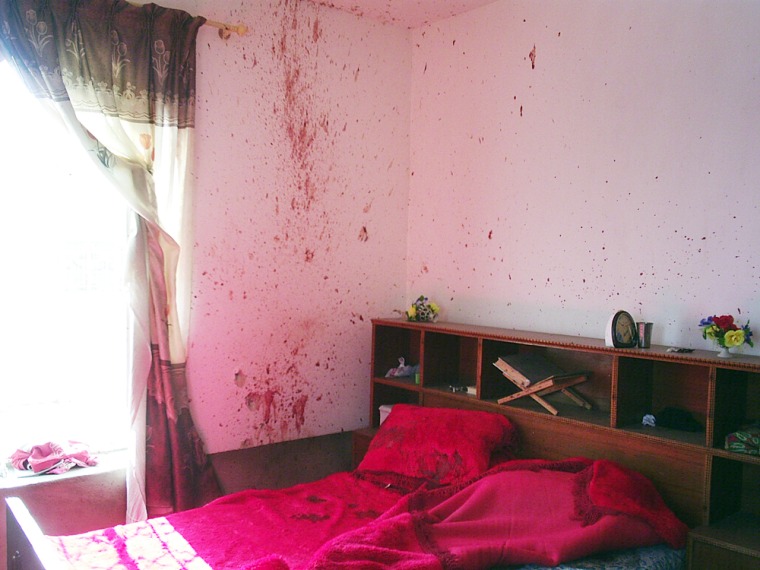The No. 2 U.S. commander in Iraq completed a review Friday of an investigation into a possible cover-up of the alleged Marine killings of 24 Iraqi civilians in the western town of Haditha.
Lt. Gen. Peter Chiarelli forwarded his findings and recommendations to Gen. George W. Casey, the top commander in Iraq, according to a statement.
The findings have not officially been made public yet, but U.S. military officials speaking on condition of anonymity told NBC News that the investigation found a number of Marines allegedly filed false reports claiming the civilians were victims of a roadside bomb by militants.
The probe also found higher officers allegedly ignored evidence that there may have been criminal activity in the case, the officials said.
CBS News reported that those officers were at every level up to and including the colonel who commanded the regiment involved in the incident.
The investigation was separate from an inquiry still under way into whether a small number of Marines from the 3rd Battalion, 1st Marine Regiment murdered the 24 civilians — including unarmed women and children — on Nov. 19 after a bomb in the town killed one of their comrades.
Chiarelli’s report was based on an investigation conducted by Maj. Gen. Eldon Bargewell into whether the Marines followed proper procedures in reporting the incident to commanders, or whether anyone engaged in a cover-up.
His investigation also may consider whether any criminal charges should be brought.
CBS said the report cites several “red flags” that officers should have noticed showing the civilians did not die from a roadside bomb, among them:
- A Marine intelligence team took photos of the bodies that show the civilians were killed by gunshots, not by shrapnel from a bomb.
- Marines delivered the bodies to a local morgue, where death certificates listed the cause of death as gunshot wounds.
- A Marine officer distributed $38,000 in compensation payments to the victim's families.
Right course of action?
The military initially said the Iraqi deaths were the result of the roadside bomb and a subsequent gunfight with insurgents.
A U.S. military official said Chiarelli agreed with Bargewell’s findings for the most part, but there were some areas in which he recommended a different course of action. The official did not elaborate.
He said the investigation found that errors were made in the reporting and follow up of initial allegations after the killings and suggested some were of a criminal nature.
“It essentially bolsters the ongoing criminal investigation and lays bare some of the administrative faults that existed during November 2005,” the official said, speaking on condition of anonymity because the findings have not been publicly released.
“What some of these people did wrong is certainly not illegal or criminal, but administratively their actions are something that Gen. Chiarelli wants to look at,” the official said.
More to be released soon
The official said the military hoped to release most of the findings in the next two weeks, but anything that could be used in the criminal investigation would not be made public.
“Some of the portions will be redacted because they could be used in a criminal investigation, either a current one or one in the future,” he said.
The case is one of several allegations of U.S. abuse of Iraqi civilians that threaten to further weaken popular support for the Iraq war in the United States and tarnish the military’s image.
Iraq has ordered its own probe of the killings, with Prime Minister Nouri al-Maliki using unusually strong language to condemn them.
